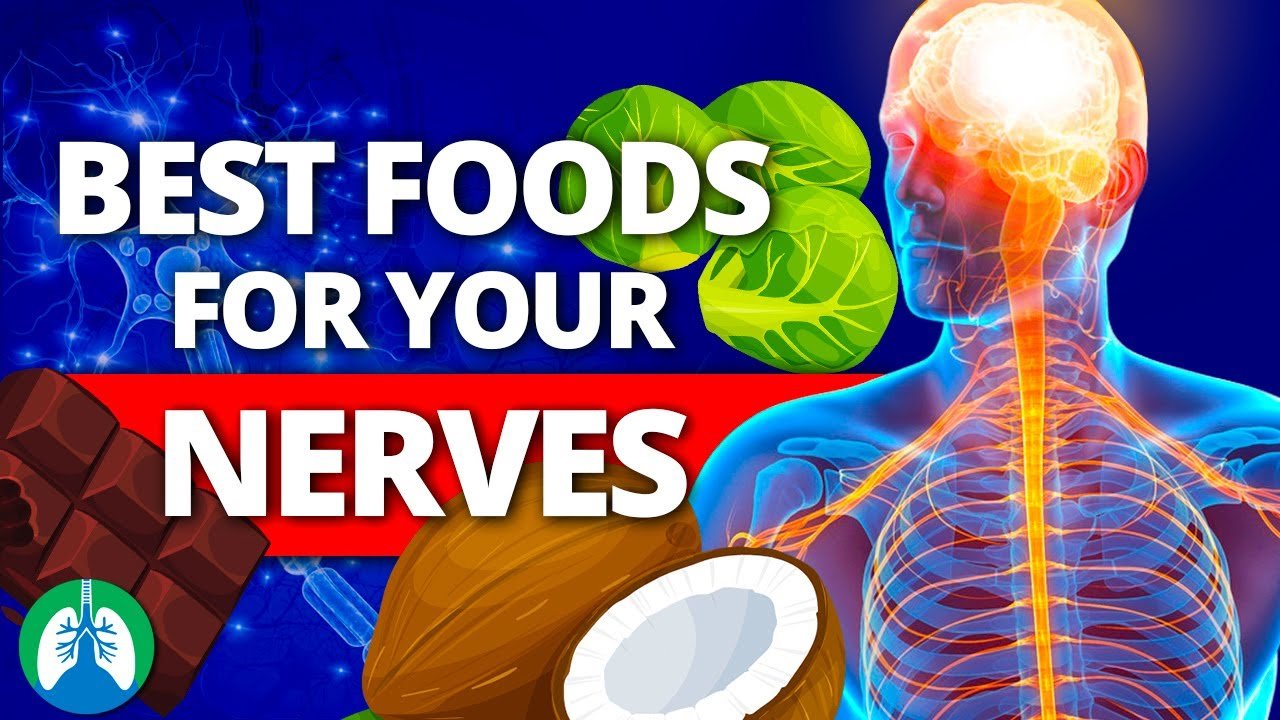How Neuropathic pain Relieving Foods Heal Us
Neuropathic pain Relieving Foods Heal Us
There is a clear advantage to consuming nutritious, low-inflammatory foods if you have nerve discomfort. A plant-based diet provides several options for nerve health and pain reduction.
What’s also amazing is how simple it is to create basic meals at home, where you have complete control over the supplies. The convenience of dining out does not worth the danger of depending on restaurant kitchens to employ foods or substances that treat rather than worsen nerve discomfort.
Eat more of these six plant-based foods that are good for your health and may help you lessen nerve discomfort throughout National Nutrition Month and beyond. You may eat them alone or combine them in salads. Good luck with your meal!
Vegetables that are green and leafy
Vitamin B is found in broccoli, spinach, and asparagus, and is necessary for nerve regeneration and function. Spinach, broccoli, and kale also contain alpha-lipoic acid, a vitamin that protects nerves and promotes nerve function.
Vegetables, like fruits, are abundant in antioxidants, vitamins, and minerals. Grains that are whole. Carbohydrates may be found in whole grains such as brown rice, oatmeal, quinoa, buckwheat, millet, and sprouted grain bread.
The outer shell of the grain, which is maintained in whole grains, contains B vitamins that are needed for brain and nerve function. Refined carbohydrates, such as white bread and white rice, may increase symptoms of peripheral neuropathy. The gabantin 300 is the most effective tablet for neuropathic pain.
Fruits
To aid in the healing of injured nerves, consume at least one fruit every day. Antioxidants are abundant in berries, peaches, cherries, red grapes, oranges, and melons, among other fruits and vegetables.
Antioxidants contribute to the reduction of inflammation and nerve damage. Furthermore, grapes, blueberries, and cranberries have been shown to be high in resveratrol, a potent anti-inflammatory molecule.
Fruits include a lot of antioxidants, which help to prevent nerve damage and inflammation. A portion of fruit should be consumed every day. Raspberries, blackberries, blueberries, cranberries, cherries, grapes, and oranges are all good for your nerves.
They may not only help avoid nerve injury, but they can also aid with nerve repair, particularly grapes and berries, which contain resveratrol, which protects the body from internal harm.
Alpha-lipoic acid is an antioxidant found in broccoli, Brussels sprouts, spinach, and kale that may help prevent nerve damage and improve nerve function. Inflammation-fighting alpha-lipoic acid and phytonutrients are found in potatoes and yams, so include them in your diet.
Zucchini
Zucchini is a fruit that looks like summer squash. It, like other fruits, is abundant in antioxidants and hence useful to nerve cells. It’s also high in potassium, which aids neuron communication, and magnesium, which soothes overworked nerves.
Sweet potato
This root vegetable has a variety of nerve-boosting compounds: Vitamins A and C are plentiful, protecting cells from free radicals. Natural anti-inflammatory chemicals may also be found in sweet potatoes. Animal studies have revealed that consuming purple sweet potato extract reduces inflammation in nerve and brain cells. A sweet potato’s high fiber content prevents blood sugar spikes by causing carbs to burn slowly.
Quinoa
Quinoa is a flowering plant that produces edible seeds, despite the fact that it is usually mistaken for a grain. Quinoa, formerly a staple diet for aboriginal peoples of Peru, Bolivia, and Chile in the Andes Mountains, has developed into a global favorite, being farmed in more than 70 nations. Quinoa is high in potassium, which assists in the efficient transmission of signals across neurons. It is high in magnesium, phosphorus, manganese, and folate. Protein, fiber, iron, copper, and vitamin B6 are all included in this superfood.
Avocado
This unusual fruit is high in beneficial fats. It, like quinoa, has a healthy amount of potassium, which aids nerve transmission. Avocados also aid in the absorption of antioxidants by the body.
Numbness, tingling, and weakness are signs of neuropathy, which is caused by nerve injury. Neuropathy and nutrition have long been linked by researchers and clinicians, with the belief that a balanced diet helps prevent or halt the course of neuropathy.
Neuropathy is most often linked to diabetes, although it may also be caused by metabolic disorders, infections, or toxic exposure. Nerves need nutrients to maintain their health, which is why dietary adjustments and collaboration with a nutritionist or dietitian are nearly always part of neuropathy treatment strategies.
Let’s speak about how specific foods may help you manage your neuropathy, as well as where you can get a physical evaluation and noninvasive neuropathy therapy and relief.
What Is the Best Diet for Neuropathy?
The following seven meals may aid in the treatment of neuropathy and alleviate discomfort in your arms and legs:
Nuts
Another good source of vitamin B is nuts. Fiber-rich foods include almonds, cashews, walnuts, and sunflower seeds, which keep you fuller for longer and reduce overeating, which is something neuropathy sufferers should avoid.
Legumes.
Magnesium is required for nerve function restoration and assists in nerve regeneration. Natural sources of magnesium include black beans, lima beans, pinto beans, chickpeas, fava beans, and lentils.
Omega-3 fatty acid-rich foods
Because of the omega-3 fatty acids included in fish oil, it has been discovered to help recover the state of injured nerves. Salmon, tuna, cod, herring, sardines, mackerel, flaxseeds, and chia seeds are high in omega-3 fatty acids, which help regulate blood sugar and reduce inflammation. Omega-3 is high in resolvins, which are protective chemicals that help with neuropathy symptoms.
Proteins that are low in fat
Vitamin B-12 is found in meat products, and it is necessary for a healthy neural system since it increases nerve impulse transmission and supports neuron mending. Include poultry in your nerve-healthy diet, such as chicken and turkey.
Treatment for Neuropathy that Isn’t Invasive
Our healthcare specialists at NIVA Health are delighted to provide our excellent neuropathy program if you wish to start utilizing diet to enhance your neuropathy symptoms and general health. To learn more about NIVA Health’s neuropathy program, visit the clinic nearest you or fill out our short appointment request form.

















